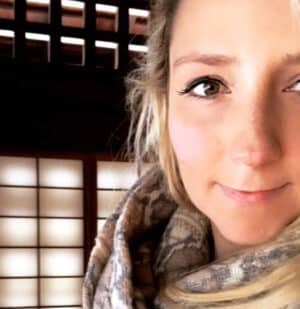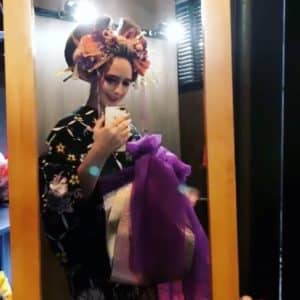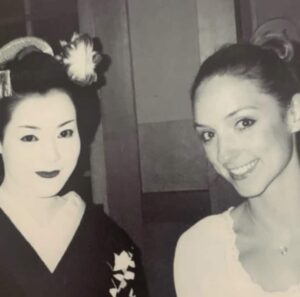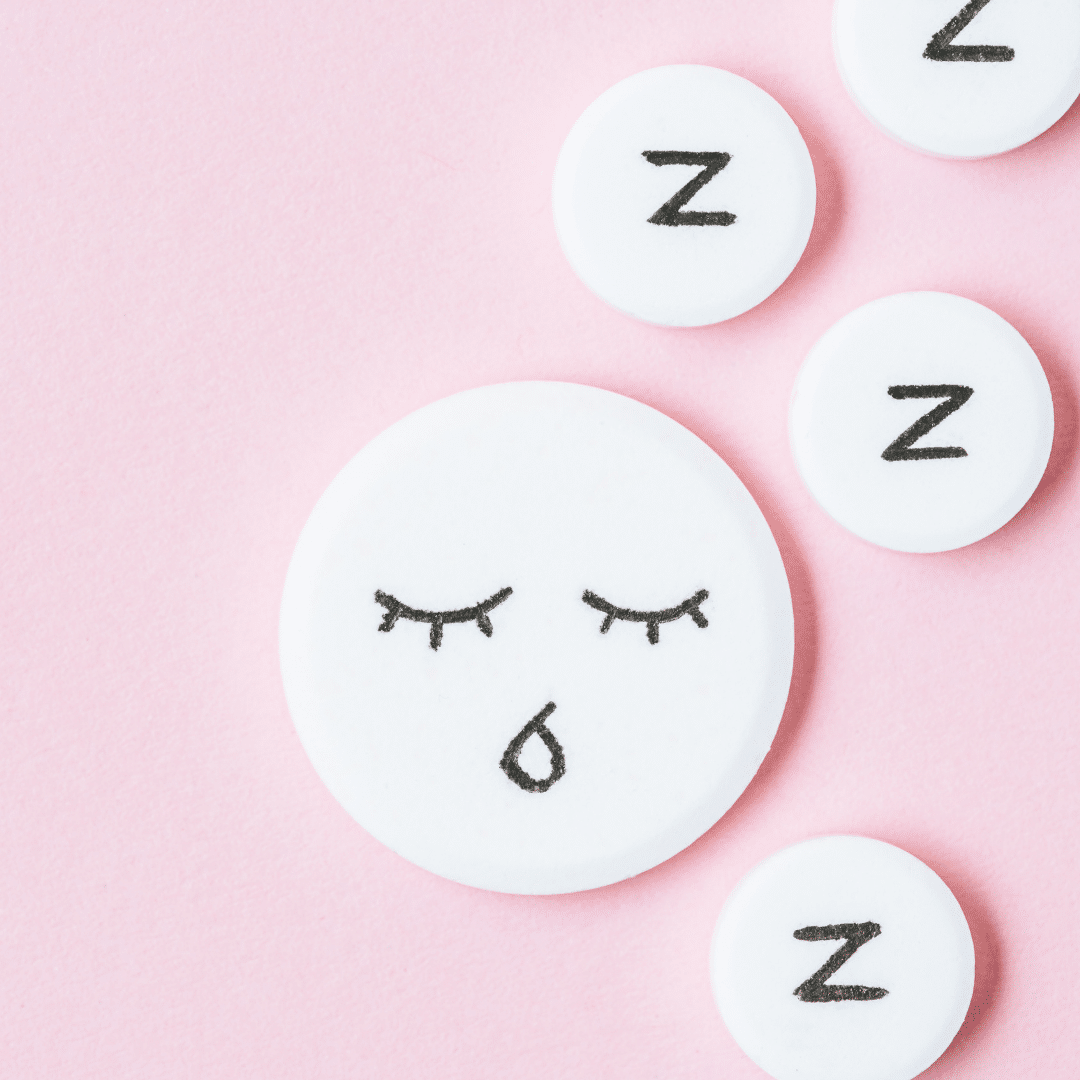
*This is just my experience and literally my thoughts on what has happened literally in front of my own eyes.*
My first Melbourne high school camp I must have reached a new level of teen responsibility but my Mum allowed me to take our family point-and-shoot camera. You know, the camera with the physical film in the back? Where you never have any idea of how any pictures turned out until the photoshop handed them back in the shiny paper envelope?
Well, fast forward to photo pick up day and I remember how angry my parents were that at least 80% of the photos taken were of our friends asleep on the bus on the way to and home from camp.
And it wasn’t just me. Everyone else got in trouble for the same thing.
Looking back – the idea of catching your buddy or – or even better- a teacher in the vulnerable ( draw on your face, throw something at you, shock you to the land of the awake kind of vulnerable) state of sleep was like peering in on a secret side to someone you saw daily. And especially for teens, when we were all trying just so hard to not look like we cared that much about anything and the “everything face” was meant to be a cold, hard setting of “megghhh whatever…” “Meggghhh whatever” doesn’t really go with a loud snore and a sleepy drool, you see.

Sleeping & School
I didn’t, of course, know it at the time but, less than 3 years later I was living in Japan as an exchange student and one tiny element of that experience was my fascination with cultural difference and sleeping.
You see, once the newness of adjusting to a new country and being the only non-Japanese student vibe was wearing off ( I wrote a blog post about this adjustment to life in Japanese high school here) , I started catching on to some lunchtime conversations of my classmates. And, like most high school girls anywhere in the world, most of the conversations centered around favourite bands and favourite tv shows. It was an all girls school so our “which boy do you like “content” was pretty thin.
I really wanted to join in on the tv chat. Mostly for social connection and something to link me to the group but also from a nerdy vocab and language learning perspective. I’d been trying to take in some tv and, luckily, the shows that seemed to be the most popular were those (literally) sparkly and shiny studio talk show meet interview meet music shows meet silly skits … which was ideal for me for several reasons…
1) They changed topics every few minutes so it didn’t matter so much if I missed the key vocab because I’d probably be luckier with the next segment
2) Much of the comedy was visual – so I could get the gist.. kind of … ( and the other portion was around different dialects and accents within Japanese that I wasn’t ready to even start to look into at that point so I just placed it neatly in the ” too hard” basket. )
3) Most Japanese variety shows have subtitles at the bottom for punchline or storyline emphasis – fabulous for someone frantically typing in a new tricky word into an electronic dictionary
4) Many variety show segments involve a flashback or “true story” reenactment ( much like they used to do on those “911 / Emergency ” shows)
But… just when I discovered that I was up with some of the shows my classmates discussed….. I realized that the most popular shows I seemed to have missed. So walking from school to the station one day I pulled aside a classmate for more info.. why have I missed the “main tv event” ?
She, very Kindly, wrote down the most popular shows, the channel and the times they started… and I suddenly realized why I wasn’t up to speed… these shows started at 11:30 and one of them began at 1am!*
I know I sound like a complete Nanna by sharing my shock at late, late night tv.. but I was 16 years old and, in Australia, Prime Time TV is almost always 7:30-9:30pm ( even on the weekends, really.)
And suddenly my classmates all napping on the train ride home ( and on the way to, come to think of it) made more sense.
And don’t get me wrong – this isn’t a judgement moment by me – I was fascinated by this notion of “I’ll just catch up later” and how that was not only the done thing but it seemed that most of my friends did a pretty good job of doing it but also at all of the “right times.”
I always had a little internal giggle when a teacher walked past a classmate who was power napping ( sitting completely upright) in one of our classes and the teacher just kept on with the lesson. Kept on talking. I imagined a classmate getting publicly shamed or kicked out for doing the same thing ( “I’m sorry, are we keeping you UP, Sarah?!”… but it was totally okay… and that same girl seemed to pass the tests and the assignments just fine too …. so maybe she had some kind of magic turn-off button during the not important parts?
* It makes sense to show prime-time tv shows later in the evening in Japan due to longer work hours and dining hours. You’ve got to adapt to that keen audience, right?
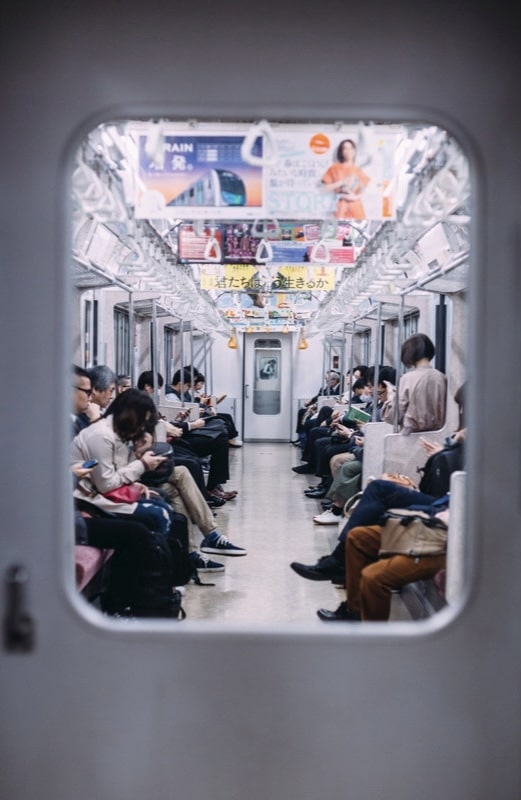
Sleeping & Public Transport
Japanese people sleeping on trains is a pretty well known cultural slice of Japan ( even if you’ve been in Japan for a whole 5 minutes.). Japanese people have mastered the art of the train power nap like no other.
Any of my international friends who have lived in Japan for more than a few months has witnessed a funny sleeping train story.. From the usual accidentally sleeping on a strangers shoulder… to the time I saw a standing sleeping man ( standing = holding on to the handing ring thingy) and then answering his ringing phone by, in a sleepy haze, taking off his own shoe and holding it to his ear ( !!!?!!! I still laugh thinking back to that one.)
The main reason sleeping on public transport in Japan is mainly down to just how deliciously safe it is in Japan. It is unlikely that someone will take that moment to pick your pocket or take your bag or worse – do something to you ( in good humor or with bad intent.)
A Japanese friend asked me why people don’t seem to sleep on trains and buses in Australia – especially on short trips in the daylight hours.
I had a really good think about this question and I came up with this answer – which I’m pretty happy as a reasonably quick explanation ( this was the rough idea…)
“I remember once when I was reading about why it’s not ideal to move a sleeping child to a new location once they are past the baby stage. Sleeping is a state of vulnerability but , also , if you think of humans as machines – sleeping is literally our recharge time. The time when we turn the button off on being aware and keeping ourselves safe. I think that, in Australia at least, it would be seen as just too risky to place yourself in your most exposed and defenseless state. You don’t know what is happening around you – and sometimes what is happening to you. When I think about it it is sad that it has to be this way but I think, in Australia, it is seen as one of the elements of social awareness – to save sleep for safe and private spaces at pre-planned times.
Apart from public drunken-ness, to sleep is kind of child-like and not in a shameful way but in a way that means that you are completely trusting all elements of your environment. ”
Another lighter and cuter note? A two reasons that Japanese trains are so perfect for a power nap?
a) They run on time. A friend of mine knew that he got on his train every morning at 7:08AM everyday and would sleep soundly with his alarm set for 7:22 as he knew he would need to alight the train at 7:23. ( This blows my mind.)
b) Those heaters under the seats. Oh man…. no-one could ever not fall asleep with that going on. That warm snuggly heat but the rocking of the train? I’m out. We’re all out.
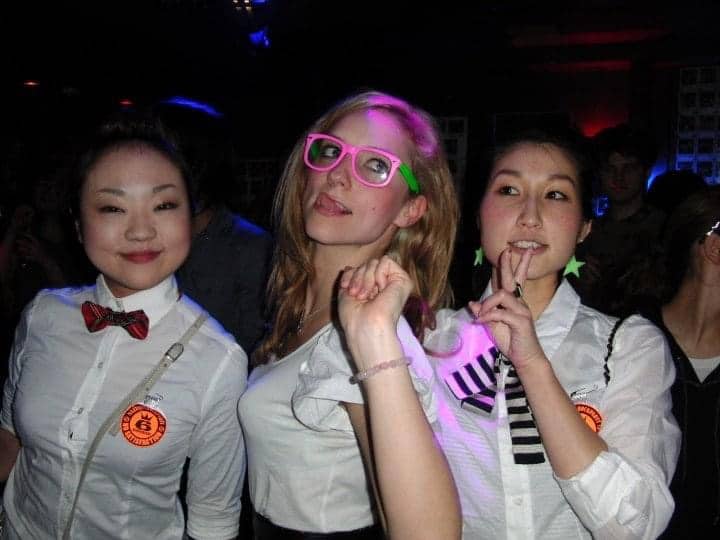
Sleeping & Drinking
By the time I was back living in Japan after Uni, I was now of legal drinking age. Enough to have been out a bit in Australia and done the whole bar and nightclubbing thing too. As soon as I moved in, I knew I was in for a different kind of adventure when I could literally see a bar all lit up with neon at the end of my street. The neon signs flashed and the font was straight out of Happy Days.
“Cocktails & Hot Dogs” it flickered at me ( what a natural combo!)
But it was when I visited nightclubs that the culture shock regarding sleeping rules kicked in. I imagine it was this way in many nightclubs around the world but, in Australia, if you fall asleep in a bar or nightclub – you’re out of there. Security are going to make you leave ( which makes sense as you’re no longer spending money with them or participating in the “vibe,” right?
But in Japanese nightclubs ( or the one’s I visited) it was quite common for other patrons to be having a little snooze after a few beverages. This was hilarious to me.
And I’ll talk about this more in the next section but …. the general rule for “acceptable public sleeping” appears to be that all is well and socially acceptable AS LONG AS you remain in an upright ( sitting upright) position with your chin to your chest or just slightly looking down.
At a work party or company dinner, same rules seem to apply. The conversation will just keep on going around you – until the napper has had a few moments of shut-eye. I find that Japanese people work hard and play hard so I think this sleeping “loop-hole” just ( maybe?) had to come into play out of necessity?
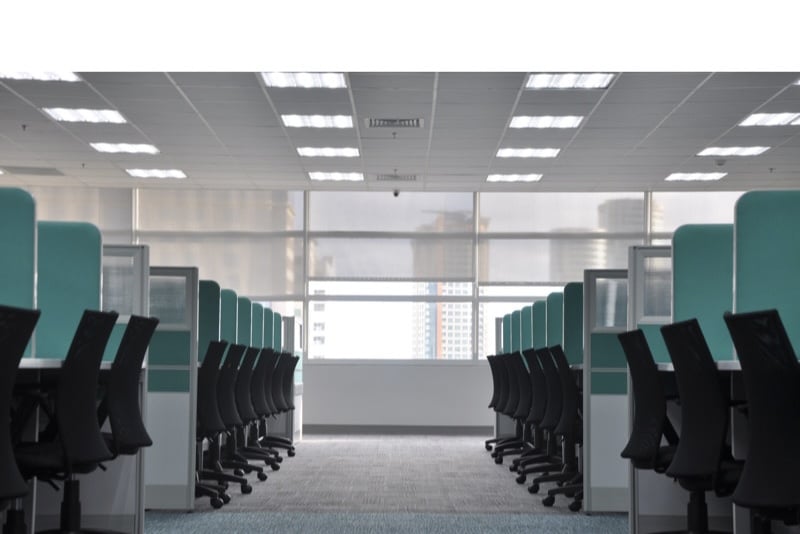
Sleeping & Working
Fun fact: There is a word for sleeping at work in Japanese. It is called inemuri. It means “present while sleeping.”
Ok. So I’ve worked in Japanese office jobs for a few different companies now.
The sleeping thing at work is always the cultural element that I find to be the most perplexing. It’s a big cultural difference.
In one company I worked for… HR & Accounting were in the one office and I swear to god they seemed to take power napping in shifts. It was like the most sterile and formal day-spa you’ve ever seen.
I was, of course, never ballsy enough to ask anyone in that department about it directly but I did bring it up with two colleagues from my own department.
One of the women was the same age as me and had lived overseas so she giggled at my question and said it is a bit weird if you think about it and it’s kind of frowned upon sometimes… but the older colleague dead-pan told me that it’s because they have been working so hard….. ??… ( I’m actually sure that they have – between naps – and ..well…. they certainly worked long hours… ridiculously long hours sometimes… but surely someone, at some point, needs to have a good old fashioned think about the productivity of each of these long hours? No?! )
Many people in Japan feel this way. Sleeping on the job can actually be seen as a sign of diligence. It shows that you have worked so hard that you need a moment to recover. You’ve truly devoted your brain space to the company.
Her explanation made me giggle ( later, not in front of her – she was pretty scary) It reminded me of when I would watch tv with my Dad and suddenly he would start to snore. Someone in our family would tell him to go to bed and he would be positively horrified at the very idea that we accused him of being asleep. “I wasn’t sleeping! Just resting my eyes for a minute!”
So, clearly, these HR & Accounting Department Staff were “just resting their eyes for a minute!” Of course!
As I mentioned above, the criteria for acceptable sleeping is :
– one must remain upright ( standing or sitting)
– one’s heads cannot rest on desks or resting on hands – apparently this is too close to a real sleep
– one must not snore
– one must be able to return to “awake state” at a moment’s notice*
– one must not be in a room/ space with a small number of people ( falling asleep in a one on one conversation is… obviously… pretty rude)
*Literally like an on and off button has been pushed.
I know, for a fact, about the heads on desk point through fault of my own.
I did a brief stint in Osaka as an Emergency Teaching Assistant once. Staff desks were cubicle style ( kind of like library desks) where my walls were there but if I leaned back slightly I could see all the other teachers to my right and left. Every single day , the guy next to me seemed to have his eyes shut. As long as he was sitting there ( between classes) he seemed to be power napping. I’d been in Japan long enough to not think that this was that weird but there was one day when I’d had a big boozy night with friends ( Naughty naughty me!). Well I’d survived all the morning classes ( just!) and had a free period in the afternoon. I just thought I’d have a tiny Nanna nap. You know, just resting my eyes for a second, right?
Well… I’d started with my head in my hands but … how can I possibly really rest with my head in my hands so I placed my folded arms on the desk and used them like a pillow.
I think I’d gotten in a whole 5 minutes of cheeky sleep until I woke to voices behind me. Two teachers talking right behind me ( my job only required English in that role so many people forgot that I could understand Japanese)
Teacher A: “Is that…errr…allowed? Should I wake her?”
Teacher B: ” hmmmm…. not really… but leave her…”*
I knew right away I’d screwed up.
*In Japan, not getting directly told off is waaaaaaaaaaay worse than getting directly told off. Trust me.
I sheepishly “fake woke up” and pulled out my books to get back to work. Petty me dying to scream out that the dude next to me sleeps all day long! But I knew better.
And that it how I’d discovered this unwritten rule of remaining upright for sleeping is the only type of sleeping allowed.
I had broken the rules of inemuri. I’d crossed the barrier of light, accepting corporate sleep … and jumped too hard into the deep Hangover Harry sleep. I’d screwed up.
In conclusion of much talk about sleep…
Now please don’t misunderstand me if you’re thinking I’m insinuating that Japanese people are lazy. In fact, I think it’s the opposite. Japanese people do work incredibly hard. There are also some very rigid structures and company protocols in place that can be tiring. Nights at work are later which means socializing and tv time is also later ( and, it’s important to note that the work day does tend to start slightly later.)
But it is mostly a cultural difference. It’s just not seen as bad practice in the same way it would in Australia ( I can only speak for what I know first hand.) Taking a nap in public is not seen to be unusual social conduct.
Remember how the Head of Tokyo Fashion Week was shamed internationally for falling asleep at a meeting to discuss covid concerns?
I saw that and just cringed… not because he actually closed his eyes for a mini rest … but mainly because I just wished someone had taped him on the shoulder and told him just how it could be perceived elsewhere. This really is a cultural difference that can really and truly mess with international understanding…..
Oh goodness… now I wish I’d chosen to write about “Japan & Sleep” for one of my assignment topics when I was at University…….
Anyway… night night…. off to my 11:35am eye shutting time now…..

